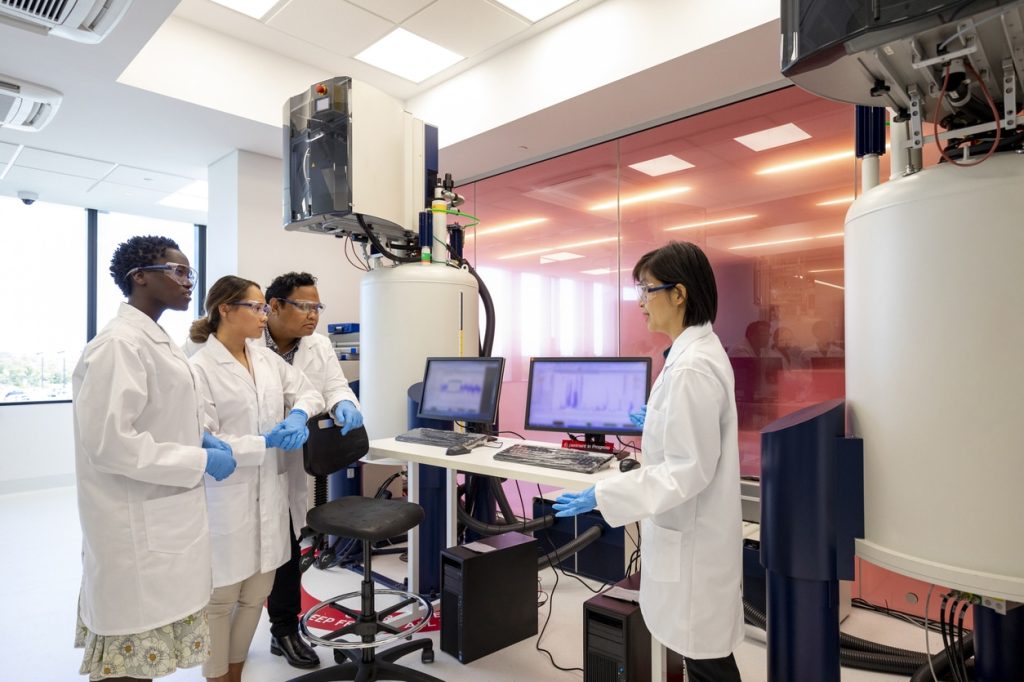A great idea, no matter how simple, needs nurturing and moulding before realising its potential for innovation. Luckily, there’s a wide range of grants and funds that organisations or individuals can apply for, in order to develop their creations – whether it’s a product, process or service.
From research organisations and charities to laboratories and businesses, such resources allow projects to flourish in ways they may not have been able to without the necessary funding. Here, we’ll present a guide to applying for and receiving funding, covering the kinds of funding that are available, and what to do before applying, along with some tips on how to make the process go as smoothly as possible.
Innovate UK
Innovate UK, as the name suggests, are ‘the UK’s innovation agency’. Part of UK Research and Innovation, a non-departmental public body funded by grant-in-aid from the UK government, Innovate UK are dedicated to fostering productivity and economic growth through supporting business innovation and research. Since 2007, they have invested around £2.5 billion in businesses across the country, helping 8,500 organisations in the process.
- Applying for funding from Innovate UK

Whether you’re a start-up, you’ve recently gained micro company status or it’s a large multi-national you work for, you may be able to receive funding of between £25,000 and £10 million through grant funding competitions that help to develop your ideas and ensure they’re a success.
If your project involves one of the following, Innovate UK may be able to provide funding for:
- Testing the feasibility of your idea to ensure it will work
- Creating a new product, service or process – or improve an existing one – through research and development
- Working with other businesses or research organisations on collaborative projects.
When you apply for the funding specific criteria and eligibility will be outlined in the scope of the competition. Eligibility rules vary for each competition, so these should be thoroughly read to see if they’re right for your proposal. Depending on which competition you apply through, you may work alone on your project, or form a consortium.
- Innovate UK initiatives
Open programme
The open programme is a great all-rounder, supporting innovation from any business within any area of the UK economy, so all sectors or technology bases can apply.

Knowledge Transfer Partnerships
If you’re looking to increase your knowledge and expertise, then the Knowledge Transfer Partnership allows you and your company to work with an academic organisation, where a highly qualified graduate will offer additional help and insights.
They’ll bring in new skills and up-to-date academic thinking to help optimise growth, innovation and productivity over the course of a project.
Innovation to Commercialisation of University Research (ICURe)
Some ideas and projects deserve to be seen by as wide an audience as possible. ICURe is a pilot programme that seeks to fund research teams so they can accelerate the time it takes to get ideas from the lab and into the commercial sphere.
Open to research teams from all UK universities and certain Public Sector Research Enterprises, it’s helped to create over 100 new companies and 500+ new jobs so far.
Biomedical Catalyst
If you have a healthcare project and need to test or fund it, the Biomedical Catalyst can be incredibly beneficial. The grant can speed and scale up ideas concerned with the prevention and management of diseases, improve detection and diagnoses, and tailor treatments to the individual in order to improve patient outcomes.

Energy Catalyst
This programme offers funding to UK businesses and researchers to develop ideas that help contribute to the need for clean, affordable and secure energy. It funds projects from early-stage through to commercialisation, bringing new energy solutions to market at an increased rate.
UK Research and Innovation
A relatively new body, UK Research and Innovation work in partnership with universities, research organisations, businesses, charities, and governments to foster research and innovation across a range of fields and sectors. Through individual and collective work, they operate across the country with a combined budget of more than £6 billion.
The body currently has the following funding opportunities available:
- Global Challenges Research Fund
A £1.5 billion fund announced by the government in late 2015 to support research that addresses the challenges that developing countries face.
- Industrial Strategy Challenge Fund
Part of the government’s Industrial Strategy, the ISCF allows social scientists to raise productivity and earning power in the UK by better understanding aspects of the business environment, such as:
- Consumer behaviour and public attitudes
- Identifying opportunities for new goods, services and business models
- Improving supply chain relationships
- Maximising the value of consumer, health and other data
- Understanding sector workforces and the capacity for transformation

- Strength in Places Fund
A new competitive funding scheme that takes a location-based approach to research and innovation funding in order to support significant regional growth and local economies.
It’s open to any sector, area of technology or research discipline, too. So far, they’ve funded projects and sectors as diverse medicine, creative media, food production and finance.
What to consider when you apply
When applying for funding, the lead applicant is the lead organisation for the application, and as such, they are responsible for the following:
- Starting an application
- Adding and removing collaborators to or from the application
- Assigning questions to collaborators
- Answering questions relevant to the project
- Reviewing content entered by collaborators
- Submitting the application before the deadline
If the project involves a degree of collaboration, then be mindful that collaborators are:
- Members of each of the consortium partner organisations (if more than one)
- Members of the lead organisation (for example, financial directors)
As a collaborator, responsibilities include completing project costs and finance details for your organisations, inviting other collaborators from the lead organisation to the application, and answering questions assigned by the lead applicant.
Before you write up your application, consider the following areas:
The funding body’s objective
Be sure to familiarise yourself with the funding body’s area of expertise, and how the funding itself works. Is your chosen project eligible to fit the criteria of the funding body? Certain bodies have specific eligibility criteria for applicants such as age, qualifications, position of candidates, etc. Ensuring you and your team meet these requirements is key.

Your application should always remain focused on the funder’s objective too. Be clear and realistic in your expectations, write with passion and enthusiasm about what you want to do and try not to rely on technical terms and jargon wherever possible.
The grant’s amount and allocation
Most organisations specify a maximum amount that’s on offer. Be sure to work out how much funding you will need to complete your research and choose the funding body based on this amount.
What the grant covers
In carrying out your project, you’ll need the necessary funds for things like travel, institutional overheads, conferences, meetings and equipment. Do the funding bodies you’re researching cover such costs in their grant? If not, you should look elsewhere
Publishing rights offered to the researcher
Upon its completion, you want to be able to show the scientific community and the world at large the research you’ve successfully completed. That means you’ll need to look into whether the funder has the right to veto your research’s publication. In doing so, you should consider and analyse and copyright issues and commercialisation rights so that you have sole responsibility for the sharing of your research.
Got an upcoming construction project to complete? The team at InterFocus can help. For more information about our bespoke fitted labs, be sure to visit our homepage or call our team on 01223 894 833.





